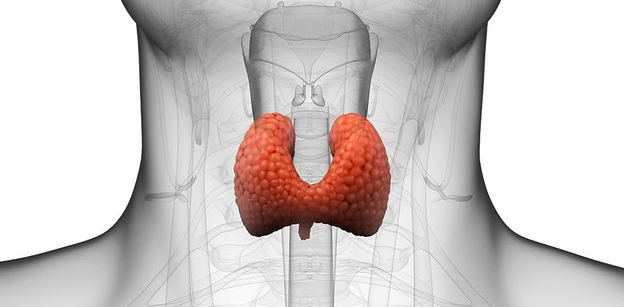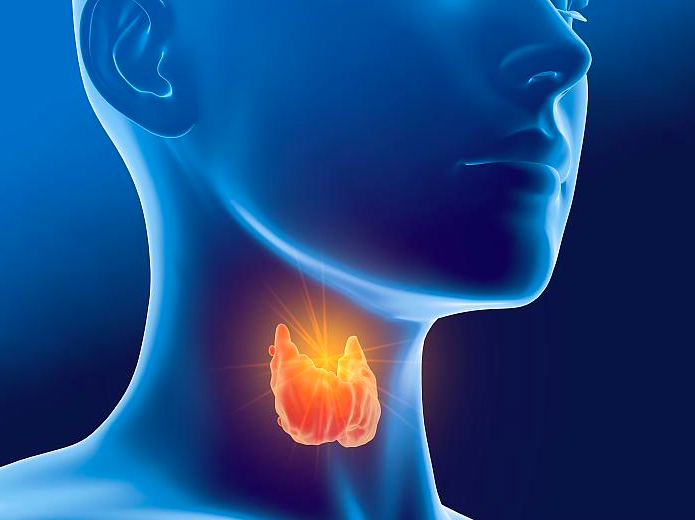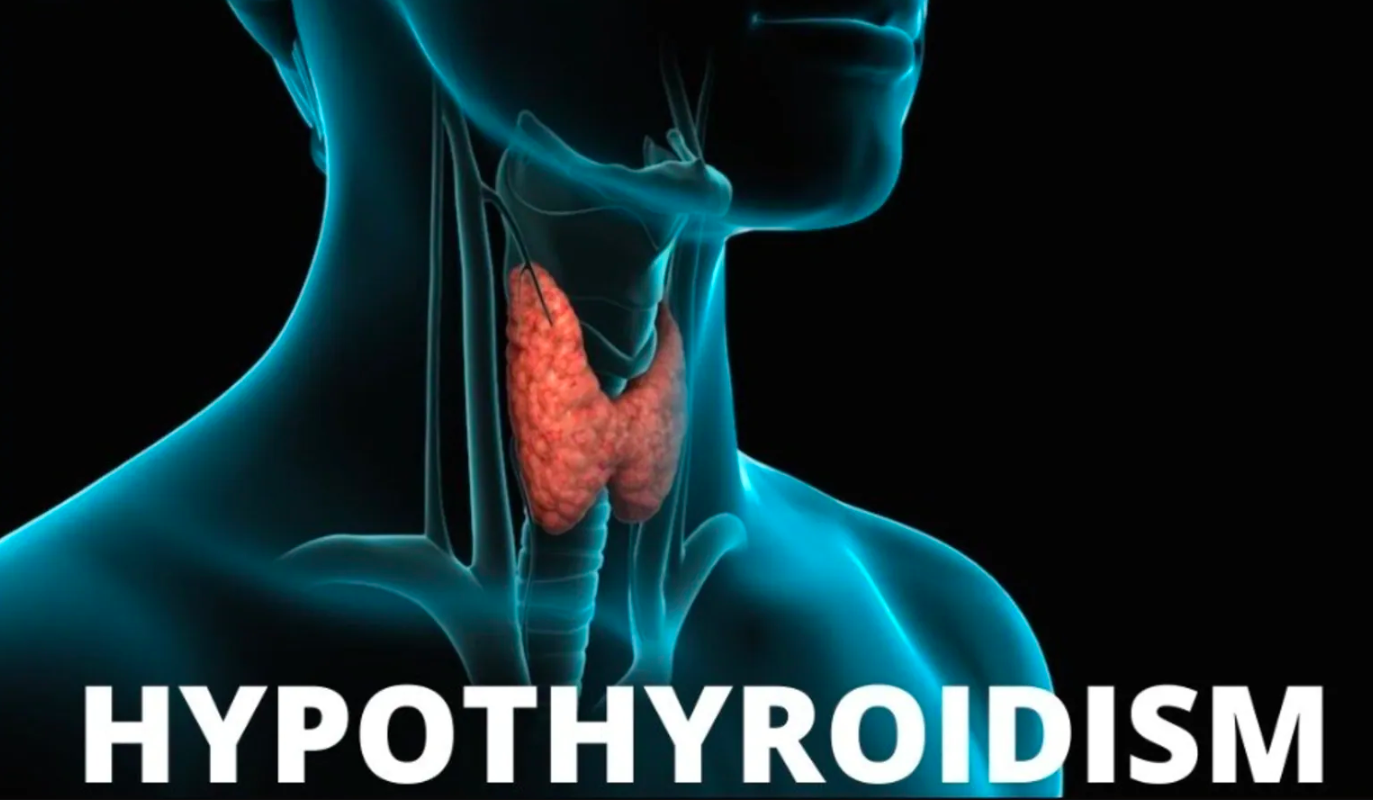The thyroid gland is a small, butterfly-shaped gland located on the front of the neck under the skin. It produces hormones that are responsible for metabolism, growth, and development. However, like any other organ, the thyroid is susceptible to diseases that can disrupt its normal functioning.
Types of Thyroid Disorders
Many disorders of the thyroid require care by a healthcare professional or a physician.
Hyperthyroidism
Graves’ disease, which includes various symptoms like sweating, arrhythmia (irregular heartbeat), weight loss, bulging eyes, and agitation, can result from hyperthyroidism.
Hypothyroidism
Fatigue, weight gain, sadness, irregular bone development, and stunted growth are all signs of hypothyroidism. The development of antibodies that target the thyroid gland is the most frequent cause of autoimmune disease.
Hashimoto’s Thyroiditis
An inflammatory condition called Hashimoto’s thyroiditis causes the thyroid gland to become inflamed. A goitre (neck swelling brought on by an enlarged thyroid gland) and other symptoms may result from it.
Thyroid Tumors
Small, benign growths called thyroid nodules and adenomas begin in the layer of cells that lines the inner surface of the thyroid gland. Thyroid hormone is secreted by the adenoma itself, which could lead to hyperthyroidism. Surgery to remove the hyperactive nodule is used in the treatment of thyroid adenoma.
Thyroid Cancer
The likelihood of developing thyroid cancer is higher in persons who had radiation to the head, neck, or chest. But it can also happen to those who don’t have any identified risk factors. Papillary thyroid cancer, anaplastic thyroid cancer, follicular thyroid cancer, and medullary thyroid cancer are the four primary subtypes of thyroid cancer. The majority of thyroid cancer cases are curable.

A healthcare provider may use a medical history, physical exam, and thyroid tests to diagnose thyroid disorders. In some cases, your healthcare professional may also do a biopsy.
Postpartum Thyroiditis
Postpartum thyroiditis is inflammation of the thyroid gland that occurs after childbirth and can lead to hyper- or hypothyroidism. It can be treated with medication, and about 80% of cases improve after 12 to 18 months.
Preventing thyroid dysfunction
In most cases, you can’t prevent hypothyroidism or hyperthyroidism. In countries with a high rate of iodine deficiency, hypothyroidism is often caused by iodine deficiency. But thanks to the addition of iodine to table salt, this deficiency is rare now.
Although you may not be able to prevent thyroid disease, you can avoid complications if you diagnose it early and follow your treatment plan.
- Iodine Intake: Adequate iodine intake is crucial for proper thyroid function. Include iodine-rich foods like seaweed, seafood, dairy products, and iodized salt in your diet. However, excessive iodine intake can also lead to thyroid problems, so it’s important to maintain a balanced approach.
- Balanced Diet: Following a well-balanced diet that includes a variety of nutrients is essential for overall thyroid health. Include foods rich in selenium, zinc, and vitamin D, as they are important for thyroid hormone synthesis.
- Stress Management: Chronic stress can negatively impact the function of the thyroid gland. Engage in relaxation techniques such as meditation, yoga, or regular exercise to manage stress levels effectively.
- Regular Check-ups: Routine check-ups, including thyroid function tests, are crucial for early detection and management of thyroid disorders. Consult a healthcare professional if you experience any symptoms associated with thyroid dysfunction.
Tips for a healthy thyroid
While you can’t prevent all thyroid disorders, you can take certain thyroid dietary steps to help your thyroid function as well as possible. Here are some tips for thyroid health:
- Try to limit “ultra-processed” foods
Researchers have linked a diet high in highly processed foods to an increased risk of subclinical hyperthyroidism, an overactive thyroid gland that may not be severe enough to cause obvious symptoms.
Examples of ultra-processed foods include frozen meals, and some packaged foods, such as cakes, cookies, and other snack items.
- Get enough iron in your diet
Your body needs iron to produce thyroid hormone. If you have an iron deficiency, you may be at a higher risk of developing hypothyroidism. Medicines used to treat hypothyroidism may also not work if you have low iron levels.
Getting enough iron in your daily diet can be an important step. Examples of iron-rich foods include:
- iron-fortified foods, such as grains, cereals, and infant formulas
- poultry
- red meat
- seafood
If you have trouble adding iron-rich foods to your daily diet, talk to your doctor to see if taking iron supplements might help.
When to see a doctor
Consider making an appointment with your doctor if you have any of the following symptoms, as they may be related to your thyroid:
- feeling a lump on either side of your voice box (larynx)
- experiencing weight gain or loss for reasons unknown
- constantly feeling very hot or very cold
- experiencing mood changes, such as anxiety, depression, or nervousness
- feeling a sense of significant fatigue
These symptoms can all indicate a potential thyroid concern and you should visit your doctor.
The Bottom Line
The thyroid gland plays a vital role in maintaining overall health and well-being. Understanding common thyroid diseases, their prevention, and the importance of regular check-ups is crucial for early detection and effective management. By adopting a healthy lifestyle, managing stress, and staying vigilant about any changes in the thyroid gland, we can ensure the optimal functioning of this important organ and enjoy a healthier life.
Citations
https://my.clevelandclinic.org/health
https://www.hopkinsmedicine.org/health


